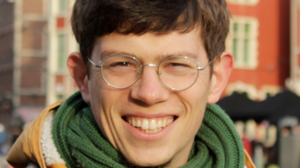Funded researchers: Dr. Raffael Beier & Dr. Guido Löhr
Dr. Raffael Beier
IEE

In recent decades, many governments of developing countries have initiated large-scale housing and resettlement programmes to reduce the number of people living in slums. While these programmes assume to add value to the life of poor urban dwellers, people’s actual housing demands are hardly taken into consideration. A frequently observed consequence is that many people leave the new houses after resettlement and move again. The rationalities, subjectivities, and destinations of post-resettlement mobilities are largely unknown, mainly because it is difficult to locate people after they moved further.
Thus, my Gateway Fellowship is about housing subjectivities and pathways in the context of post-resettlement mobility in Africa. More precisely, it aims at developing and applying suitable methods, which help to get empirical knowledge about people that moved out of their new houses. Furthermore, the intention is to move away from seeing resettlement as a single and definite solution to slums. Instead, the aim is to analyse resettlement as part of households’ residential choices over time, before and after relocation. This emphasises much-needed biographic perspectives towards housing in developing contexts.
My Gateway Fellowship takes place at the Centre for Urbanism and Built Environment Studies (CUBES), which is part of the School of Architecture and Planning at the University of the Witwatersrand, Johannesburg, South Africa. My hosts Sarah Charlton and Marie Huchzermeyer as well as many other staff members have extensively published on informal settlements, housing programmes, and resettlement and make CUBES the ideal environment for my Gateway Fellowship. This is also because it benefits from a considerable network of associated and related researchers and institutions in Sub-Saharan Africa, Germany, and beyond. Because of the location of my host institution, fieldwork for my project should be conducted in Johannesburg, but the objective is to add a comparative perspective at a later stage, which may include case studies from Morocco and Ethiopia.
Dr. Guido Löhr
Psychology
The term ‘commitment’ plays an increasingly important role in analyses of various linguistic phenomena from promises to modal expressions like ‘necessary’ or ‘possible’. However, it is not clear what exactly different philosophers and linguists mean by the term ‘commitment’ or whether they even employ the same concept.
In my gateway project I will investigate the meanings of the term ‘commitment’ using methods from different disciplines, including conceptual analysis often used in philosophy and corpus analysis predominantly used in linguistics. A clarification of the meaning of the term will increase our understanding of a variety of theories from different disciplines and how they are related. What, for example, does it mean when philosophers and linguists argue that a statement “commits the speaker to a proposition”?
The fellowship will take place at Radboud University in Nijmegen where I will work with Prof. Bart Geurts. It will allow me to address foundational questions with respect to the notion of commitment. Answering these questions will be critical for the success of my future work. This work will focus on the phenomenon of normative commitments that are acquired in social contexts, such as when making a promise or statement.


